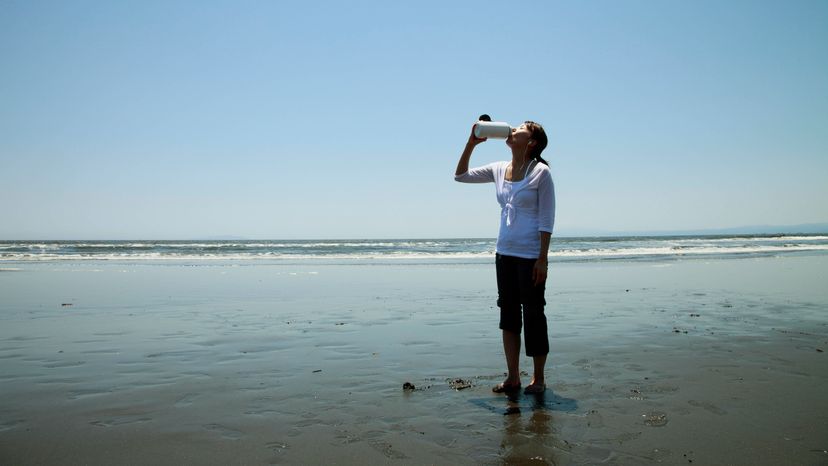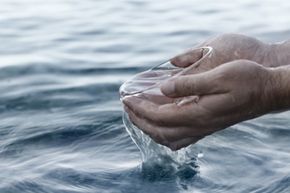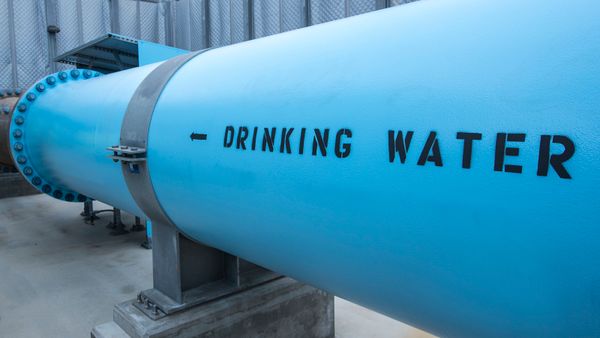
Ever daydream from your windowless office about being stranded on a deserted island? Well, when your genie comes around, you might want to pop in a clause regarding running water.
If your paradise doesn't have a convenient source of fresh water, those lapping ocean waves won't be lowering your blood pressure for long. In fact, as you scavenge "Survivor" style for liquid from fruit sources, you may find that the expansive aquamarine sea is mocking you. Because you can't drink any of it. Seventy one percent of our planet's surface is wet with water, yet most of it is ocean water that we can't consume, thanks to salt [source: McLamb].
Advertisement
Saltwater doesn't sound as deadly as, say, taking your chances on puffer fish sushi. After all, our bodies depend on both water and salt to function. Water, the universal solvent for proteins and the like, is essential for chemical reactions that help us metabolize food, use our muscles, pump our blood and even think. Our cells also depend on salt, which exists as sodium and chloride ions in our extracellular fluids, for those same chemical reactions. So, what's the problem? If anything, drinking saltwater sounds efficient, not deadly.
Although consuming a little salt is essential for our physiological well-being (and for the fries to taste good), too little or too much wreaks havoc in our bodies [source: Stoppler]. For humans, that magic number is 9. That's the salinity, or the weight in grams of salt dissolved in 1,000 grams (35.27 ounces) of water, of human blood [source: Ocean Health]. This means that every 1,000 grams of fluid contains 9 grams (0.3 ounces) of salt and 991 grams (35 ounces) of water.
In medicine, fluids that have the same salinity as blood are referred to as isotonic [source: Ocean Health]. When we consume too much salt, we excrete the excess in our urine to keep our bodily fluids isotonic.
Saltwater is a hypertonic fluid, or one that contains more salt than human blood, and it has a salinity of 35 [source: Science Learning Hub]. As you're about to see, drinking extremely hypertonic fluids such as seawater throws the body's coping mechanism into disarray.



